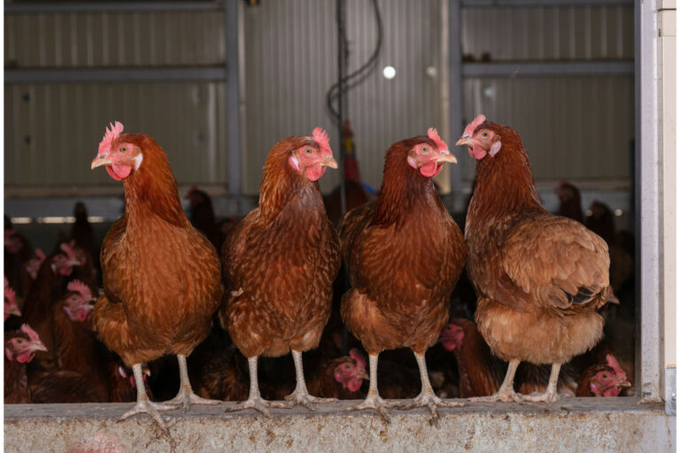May 22, 2025 | 14:01 GMT +7
May 22, 2025 | 14:01 GMT +7
Hotline: 0913.378.918
May 22, 2025 | 14:01 GMT +7
Hotline: 0913.378.918

Photo: Canva.
The additional information for the £22 million grant, which aims to enhance animal health and welfare benefits, has been provided following the first stage of applications, which closed on 18 September.
The grant, which is available for housing for laying hens and pullets, covers the replacement of upgrading/refurbishment of existing housing, which includes a number of mandatory requirements, including the need to have a veranda as part of the project.
Mechanical ventilation and high welfare multi-tier systems
Comprehensives projects for both pullets and laying hens should also include mechanical ventilation and high welfare multi-tier systems. Mechanical ventilation allows temperature and humidity to be effectively managed, especially during periods of extreme heat.
High welfare multi-tier systems improve the physical strength of the birds, zone active and inactive behaviours and increased the birds’ potential to escape stressors and exert choice, according to the guidance.
Verandas
The fund can also be used to add a veranda onto existing laying hen or pullet housing, referred to as a ‘veranda-only’ projects.
The aims of the successfully funded project are to:
Requirements
The National Farmers’ Union has put out the following information following the updated guidance.
Eligible birds – The RPA states that the term ‘laying hen’ refers to a female domestic chicken over 17 weeks of age kept for table egg production. The term ‘pullet’ refers to a female domestic chicken less than 17 weeks of age being reared for table egg production.
Who is eligible? A producer can apply for a grant if they are an existing commercial egg producer or pullet rearer. They must be a registered keeper of 1,000 or more birds. These must be on site when you fill in the online checker or have been within the last 6 months. Any buildings you build or upgrade with money from the grant must be located in England.
Land occupation – A producer must either own the land they are building on or have a tenancy agreement for the land until 5 years after the project is complete. There is further information set out in the guidance where a tenancy does not extend that long.
Eligible buildings – The rules state that housing must provide a high level of biosecurity, excellent ambient environment, and maximise the space available by ensuring full and safe accessibility to all birds. For comprehensive projects the housing should include, among other things, mechanical ventilation and high welfare multi-tier systems and a roof suitable for solar photovoltaic (PV) panels. Also, that any laying hen housing should include a veranda, where outside space is permitted.
Funding above the legal minimum – All projects must meet the legal requirements for the keeping of laying hens. This grant offers funding to help farmers deliver higher standards for health and welfare and should not be used to help meet only the minimum standards.
Not about flock expansion – This grant scheme cannot be used to directly fund flock expansion by increasing stocking capacity. Because of this, comprehensive projects will receive a lower intervention rate for aviary system costs (based on starting flock size).
If you are replacing a colony cage system, you may wish to maintain your egg production capacity by using a combination of projects. For example, both a refurbishment and a new-build project. The RPA will fund up to 40% of the eligible costs up to the maximum grant amount if the final stocking capacity of the project does not exceed that of the colony system. If at project completion, the project exceeds the starting colony capacity, then the amount of grant funding available will be worked out pro rata. You will need to fill in one application per project. A single maximum grant amount will cover both projects.
You can keep the old building if you are replacing existing laying hen or pullet housing with a new building. But you must not use the old building for poultry housing or egg production after you complete the project.
(Poultryworld)

(VAN) Attempts to bring down the price of the Japanese staple have had little effect amid a cost-of-living crisis.

(VAN) Fourth most important food crop in peril as Latin America and Caribbean suffer from slow-onset climate disaster.

(VAN) Shifting market dynamics and the noise around new legislation has propelled Trouw Nutrition’s research around early life nutrition in poultry. Today, it continues to be a key area of research.

(VAN) India is concerned about its food security and the livelihoods of its farmers if more US food imports are allowed.

(VAN) FAO's Director-General emphasises the need to work together to transform agrifood systems.

(VAN) Europe is facing its worst outbreak of foot-and-mouth since the start of the century.

(VAN) The central authorities, in early April, released a 10-year plan for rural vitalization.